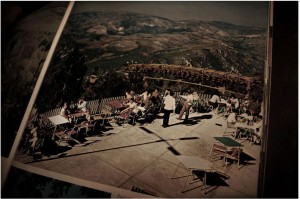
“
Do you know when was it the last time I climbed on Trebević? February 1992. I used to go there every weekend with my father. I never went again. From that mountain 22 grenades fell onto the roof of our house. Now I see it everyday from my window, and I just want it to disappear”. Bojan, 30-years-old Sarajevan.[br]The inhabitants of Sarejevo (Bosnia-Herzegovina) don't climb any more on
Trebević mountain, even if the war ended 15 years ago; the restaurants and panoramic terraces are destroyed, the cable car that connected it with the city never worked again, and, most of all, there are parts of it where there still could be landmines. But it's not lack of money the main reason why the city administration is keeping Trebević in this state of "no man's land":
the divided city is useful for both nationalisms, and an invisible barrer separating "us" from "them" undermines the postwar coexistence project and the dream of a city that could be universal again.
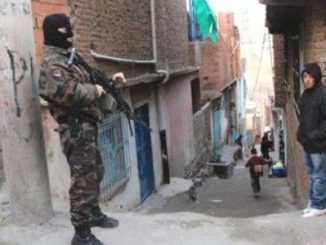

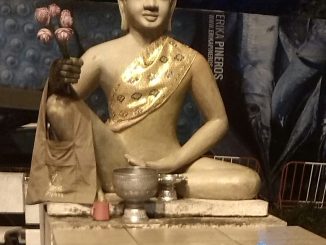
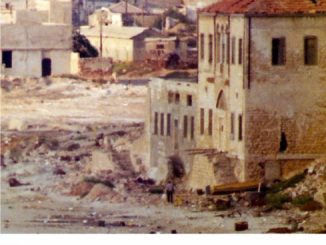


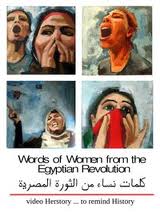
 “Do you know when was it the last time I climbed on Trebević? February 1992. I used to go there every weekend with my father. I never went again. From that mountain 22 grenades fell onto the roof of our house. Now I see it everyday from my window, and I just want it to disappear”. Bojan, 30-years-old Sarajevan.[br]The inhabitants of Sarejevo (Bosnia-Herzegovina) don't climb any more on Trebević mountain, even if the war ended 15 years ago; the restaurants and panoramic terraces are destroyed, the cable car that connected it with the city never worked again, and, most of all, there are parts of it where there still could be landmines. But it's not lack of money the main reason why the city administration is keeping Trebević in this state of "no man's land": the divided city is useful for both nationalisms, and an invisible barrer separating "us" from "them" undermines the postwar coexistence project and the dream of a city that could be universal again.
“Do you know when was it the last time I climbed on Trebević? February 1992. I used to go there every weekend with my father. I never went again. From that mountain 22 grenades fell onto the roof of our house. Now I see it everyday from my window, and I just want it to disappear”. Bojan, 30-years-old Sarajevan.[br]The inhabitants of Sarejevo (Bosnia-Herzegovina) don't climb any more on Trebević mountain, even if the war ended 15 years ago; the restaurants and panoramic terraces are destroyed, the cable car that connected it with the city never worked again, and, most of all, there are parts of it where there still could be landmines. But it's not lack of money the main reason why the city administration is keeping Trebević in this state of "no man's land": the divided city is useful for both nationalisms, and an invisible barrer separating "us" from "them" undermines the postwar coexistence project and the dream of a city that could be universal again.